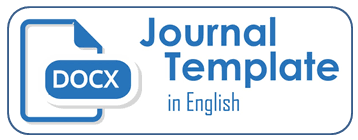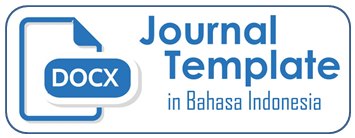PENGARUH KUALITAS AUDIT, SKEPTISISME AUDITOR PADA KEPUASAN AUDITEE DI KANTOR AKUNTAN PUBLIK DAERAH ISTIMEWA YOGYAKARTA TAHUN 2020
DOI:
https://doi.org/10.26486/jramb.v8i1.2167Keywords:
Audit Quality, Auditor Skepticism, Auditee SatisfactionAbstract
Penelitian bertujuan untuk  menguji apakah skeptisisme auditor serta kualitas audit mempengaruhi pada kepuasan auditee. Seperti yang kita ketahui, di zaman yang sudah mengglobal seperti sekarang ini, masyarakat meminta pada  auditor untuk meningkatkan kualitas kinerjanya. Selain itu, di organisasi pemerintah auditor eksternal sangat berperan dan memiliki tanggung jawab dalam menjamin sumber daya umum yang ekonomis, efisien dan efektif, guna mewujudkan tata kelola pemerintahan yang berwibawa dan jauh dari korupsi. Oleh sebab itu, auditor wajib memenuhi standar  Kualitas Audit yang mereka miliki  guna menjalankan tugasnya  didalam melaksanakan proses pengauditan dengan benar agar diperoleh hasil yang memuaskan. Penelitian dengan Subyek perusahaan auditee yang berada di seluruh Kantor Akuntan Publik di Yogyakarta. Sedangkan yang menjadi  obyek penelitian yaitu skeptisisme auditor, kepuasan auditee dan kualitas audit. Sampel yang dipake adalah perusahaan auditee yang berjumlah sebesar  258. Sedangkan data dikumpulkan menggunakan Quesionare. Pengujian hipotesis  yang dipakai dalam menganalisis permasalahan yaitu Structural Equation Modeling. Dari hasil analisis dapat diketahui  bahwa kualitas audit dan skeptisisme auditor mempengaruhi pada kepuasan auditee.
References
Agus Wijaya, I., & Yulyona, M. T. (2017). Does Complexity Audit Task, Time Deadline Pressure, Obedience Pressure, and Information System Expertise Improve Audit Quality? International Journal of Economics and Financial Issues, 7(3), 398–403. http:www.econjournals.com
Ahmed, M. I., & Che-Ahmad, A. (2016). Effects of corporate governance characteristics on audit report lags. International Journal of Economics and Financial Issues, 6(7Special Issue), 159–164.
Alexeyeva, I. (2019). Individual auditor competences and the pricing of audit services. International Journal of Accounting, Auditing and Performance Evaluation, 15(2), 191–218. https://doi.org/10.1504/IJAAPE.2019.099147
Behn, B. ., Carcello, J. ., & Hermanson, R. . (1997). The Determinants of Audit Ciient Satisfaction Among Ciients of Big 6 Firms. Accounting Horizons, 11(1), 7–24.
De Ruyter, K., Wetzels, M., & Bloemer, J. (1998). On the relationship between perceived service quality, service loyalty and switching costs. International Journal of Service Industry Management, 9(5), 436–453. https://doi.org/10.1108/09564239810238848
Dwekat, A., Abdeljawad, I., & Mardawi, Z. (2018). Corporate governance and auditor quality choice: Evidence from Palestinian corporations. International Journal of Economics and Financial Issues, 8(2), 47–53. http:www.econjournals.com
Ferdinand, Agusty. 2014. Struktural Equation Modeling dalam Penelitian Manajemen : Aplikasi Model-model Rumit dalam Penelitian untuk Tesis dan Disertasi Doktor. BP Undip, Semarang.
Gamayuni, R. R. (2018a). Factors affecting internal audit function effectivity (internal auditor competence and objectivity, management support and organisation culture) at local government. International Journal of Monetary Economics and Finance, 11(3), 179–191. https://doi.org/10.1504/IJMEF.2018.093786
Gamayuni, R. R. (2018). The effect of internal auditor competence and objectivity, and management support on effectiveness of internal audit function and financial reporting quality implications at local government. International Journal of Economic Policy in Emerging Economies, 11(3), 248–261. https://doi.org/10.1504/IJEPEE.2018.093951
Ghozali, I. (2011). Structural Equation Modeling: Metode Alternatif dengan Partial Least Square. Edisi Ketiga. Badan Penerbit Universitas Diponegoro, Semarang.
Hakim, I. H., & Omri, M. A. B. (2015). Auditor quality and tax management: Evidence from Tunisian companies. International Journal of Managerial and Financial Accounting, 7(2), 151–171. https://doi.org/10.1504/IJMFA.2015.071200
Homayoun, S., & Hakimzadeh, M. (2017). Audit Fee and Audit Quality: An Empirical Analysis in Family Firms. International Journal of Economics and Financial Issues, 7(2), 469–476. http:www.econjournals.com
Ismail, I., Haron, H., Ibrahim, D. N., & Isa, S. M. (2006). Service quality, client satisfaction and loyalty towards audit firms: Perceptions of Malaysian public listed companies. Managerial Auditing Journal, 21(7), 738–756. https://doi.org/10.1108/02686900610680521
Iskandar, T.M., Rahmat, M.M., and Ismail, H. 2010. "The Relationship Between Audit Client Satisfaction and Audit Quality Attributes: Case of Malaysian Listed Companies". Int. Journal of Economics and Management, Vol.4 No. 5, pp. 155–180.
Institut Akuntan Publik Indonesia.(2011). Standar Profesional Akuntan Publik (SPAP), http://www.IAPI.or.id/Januari 2020.
Institut Akuntan Publik Indonesia. (2018). Kode Etik Profesi Akuntan Publik Indonesia. http://www.IAPI.or.id/Januari 2020.
Kheng, L. ., Mahamad, O., Ramayah, T., & Mosahab, R. (2010). The Impact of Service Quality on Customer Loyalty: A Study of Banks in Penang, Malaysia. International Journal of Marketing Studies, 2(2), 57–66.
Mohd-Nassir, M. D., Mohd-Sanusi, Z., & Ghani, E. K. (2016). Effect of brainstorming and expertise on fraud risk assessment. International Journal of Economics and Financial Issues, 6(4), 62–67.
Muhayoca, R., & Ariani, N. E. (2017). Pengaruh Teknik Audit Berbantuan Komputer, Kompetensi Auditor, Independensi, dan Pengalaman Kerja Terhadap Kualitas Audit (Studi Pada Auditor BPK RI Perwakilan Provinsi Aceh). Jurnal Ilmiah Mahasiswa Ekonomi Akuntansi (JIMEKA), 2(4), 1.
Ningsih, F., & Nadirsyah. (2017). Pengaruh Independensi, Skeptisisme Profesional Auditor, Penerapan Standar Audit, dan Etika Audit Terhadap Kualitas Hasil Audit. Jurnal Ilmiah Mahasiswa Ekonomi Akuntansi, 2(3), 48–58.
Ohman, P., & Hackner, E. (2012). Client satisfaction and usefulness to external stakeholders from an audit client perspective. Managerial Auditing Journal, 27(55), 477–499.
Popoola, O. M. J., Che-Ahmad, A. B., Samsudin, R. S., Salleh, K., & Babatunde, D. A. (2016). Accountants’ capability requirements for fraud prevention and detection in Nigeria. International Journal of Economics and Financial Issues, 6(4).
Pringviriya, N., Fadzil, F. H., & Ismail, S. (2015). Service Quality, Customer Satisfaction and Customer Loyalty in Thailand’s Audit Firms. International Journal of Management and Applied Science, 1(5), 34–40.
Rad, S. E. M., Salehi, H., & Pour, H. A. (2016). The Impact of Audit Quality and Ownership Structure on Earnings Management of Listed Firms on Tehran Stock Exchange. International Business Management, 10(10), 1827–1832.
Ruyter, K., Wetzels, M., and Bloemer, J. 1998. “On the Relationship Between Perceived Service Quality, Service Loyalty and Switching Costsâ€. International Journal of Service Industry Management, Vol. 9 No. 5, pp. 436-453, doi: 10.1108/09564239810238848.
Supriyatin, E., Ali Iqbal, M., & Indradewa, R. (2019). Analysis of auditor competencies and job satisfaction on tax audit quality moderated by time pressure (case study of Indonesian tax offices). International Journal of Business Excellence, 19(1), 119–136. https://doi.org/10.1504/IJBEX.2019.101711
Sutopo, B., Sutaryo, & Christian, Y. (2017). Empirical study of the determinants on audit reporting timeliness: Evidence from Indonesia. International Journal of Trade and Global Markets, 10(4), 303–313. https://doi.org/10.1504/IJTGM.2017.090272
Takiah, M. I., Mohd. Mohid, R., & Hashanah, I. (2010). The relationship between audit client satisfaction and audit quality attributes : Case of Malaysian Listed Companies. International Journal of Economics and Management, 4(1), 155–180.
Utami, E. S., & Wulandari, I. (2021). Pengaruh Penerapan Good Corporate Governance terhadap Nilai Perusahaan. JRAMB Vol 7 (2), 206-2011. DOI: https://doi.org/10.26486/jramb.v7i2.2194
Zhang, X., & Feng, Y. (2009). The Impact of Customer Relationship Marketing Tactics On Customer Loyalty — Within Swedish Mobile Telecomunication Industry. Journal of International Marketing.
Downloads
Published
Issue
Section
License
Authors who publish with (JRAMB) Jurnal Riset Akuntansi Mercu Buana agree to the following terms:
Authors retain copyright and grant the JRAMB right of first publication with the work simultaneously licensed under a Creative Commons Attribution License (CC BY-SA 4.0) that allows others to share (copy and redistribute the material in any medium or format) and adapt (remix, transform, and build upon the material) the work for any purpose, even commercially with an acknowledgement of the work's authorship and initial publication in JRAMB. Authors are able to enter into separate, additional contractual arrangements for the non-exclusive distribution of the journal's published version of the work (e.g., post it to an institutional repository or publish it in a book), with an acknowledgement of its initial publication in JRAMB.
Authors are permitted and encouraged to post their work online (e.g., in institutional repositories or on their website) prior to and during the submission process, as it can lead to productive exchanges, as well as earlier and greater citation of published work (See The Effect of Open Access).












